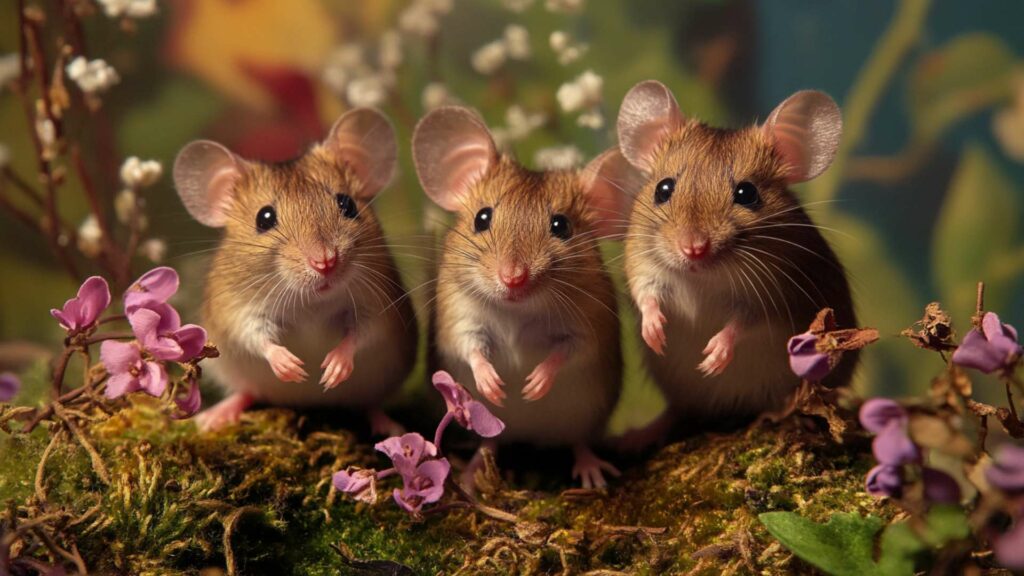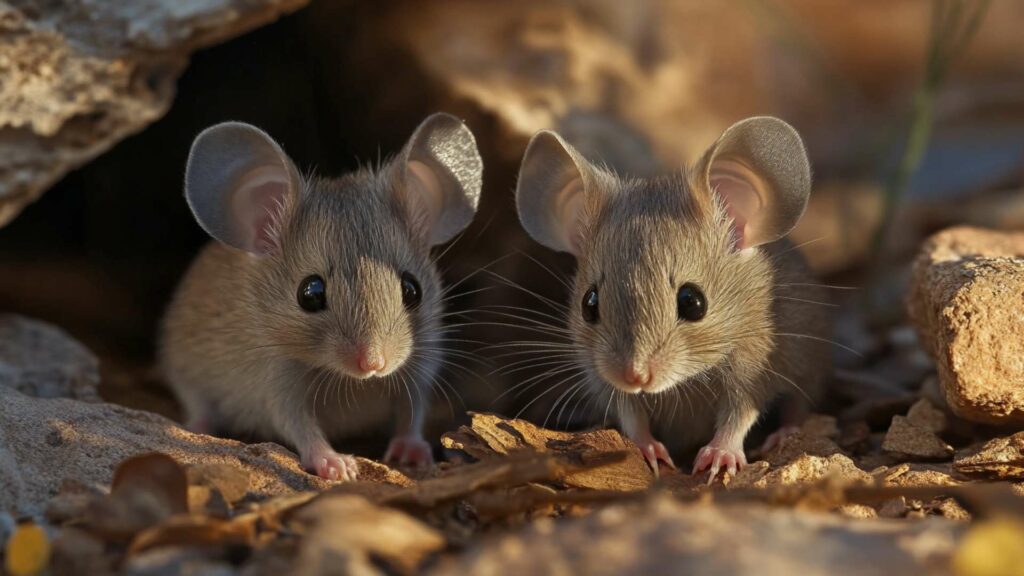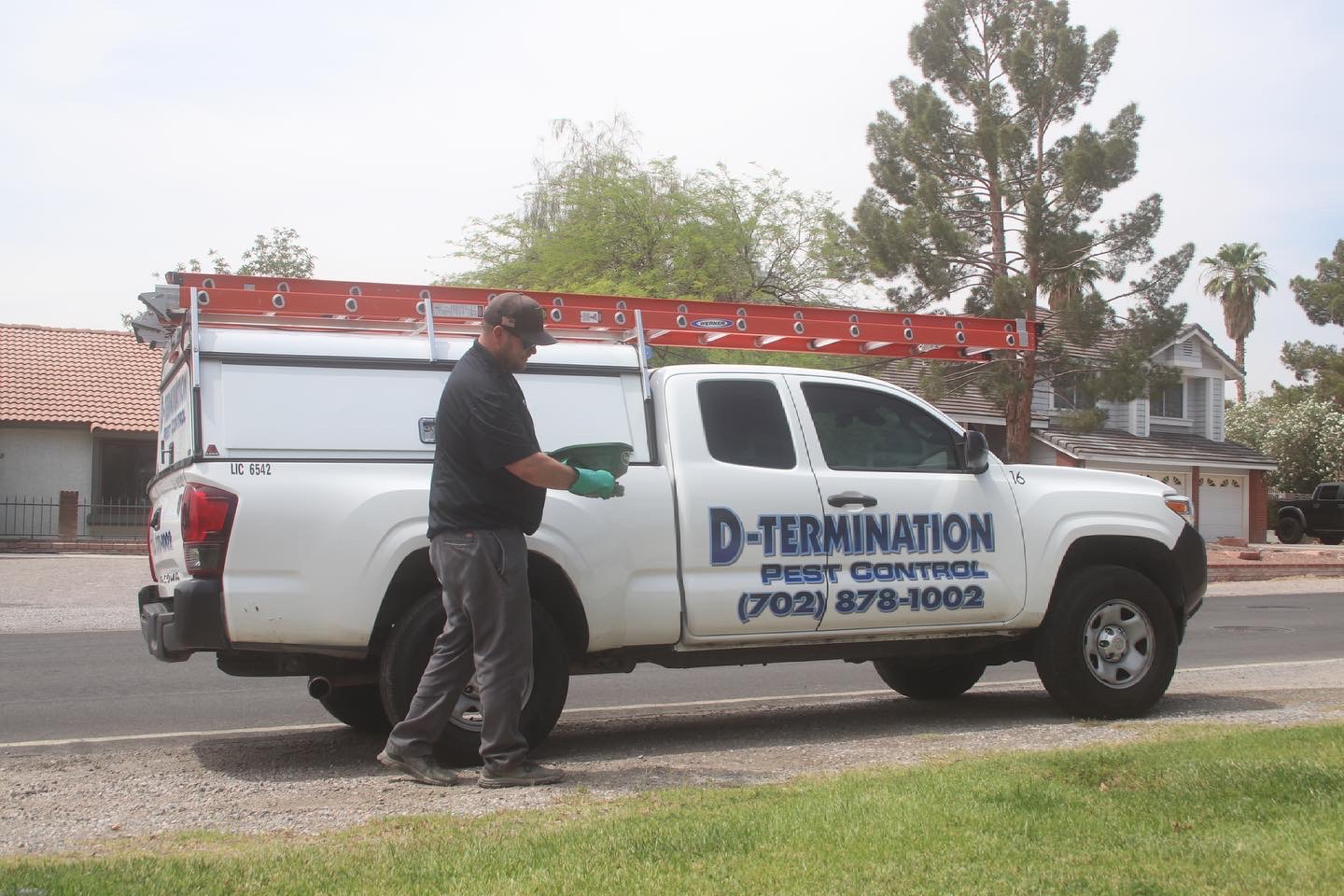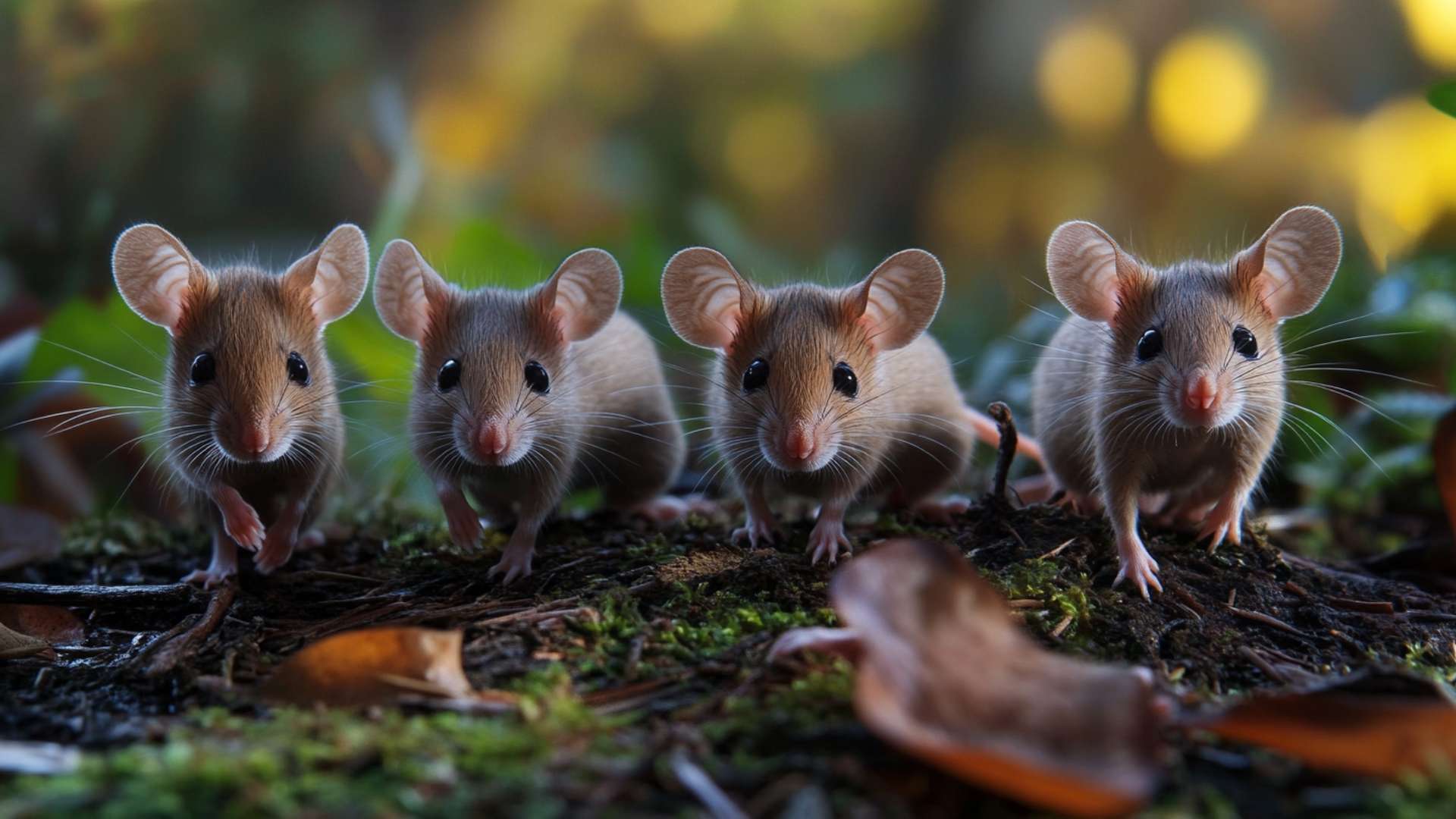Are You Aware of the Hidden Health Risks Associated with Mice?
Mice are some of the smallest creatures we see around our homes, but they carry a plethora of diseases that could be harmful to human health. The diseases they carry could range from mild to severe and can have lasting effects on the human body. They can transmit these diseases through rodent bites, skin contact with their urine/droppings, or inhaling airborne particles containing mouse allergens.
One of the most dangerous aspects of mice is that they are commonly found in households around the world. These small creatures love to nest and reproduce in warm areas, and homes provide an ideal place for them to thrive.
They can use things like nesting materials, paper products, and other items you may have stored in your home to create a cozy environment for themselves. If you’re not careful enough to detect them early on, you might overlook their presence until it’s too late.
The presence of mice in a household poses a severe threat as they contaminate human food with their waste; if ingested can cause vomiting or diarrhea in humans which is quite uncomfortable. In the following sections, we’ll discuss some of the specific health risks associated with mice and how they could impact human health if proper measures aren’t taken to prevent them from thriving in your home.
Get Reliable Rodent Control Solutions Today! Experience the peace of mind that comes with professional rodent control. Click to find out more about our services and eliminate mice from your property!
Common Diseases Carried by Mice
Discover the potential health risks associated with mice infestations and the common diseases they can carry. Our comprehensive article on Common Diseases Carried by Mice provides valuable insights into the various illnesses transmitted by mice. Learn about the symptoms, prevention methods, and treatment options associated with these diseases. Stay informed and take proactive steps to protect yourself and your loved ones.
Health Risks and Hazards Associated with Mouse Infestations
Understanding the health risks and hazards linked to mouse infestations is crucial for maintaining a safe living environment. Our detailed article on Health Risks and Hazards Associated with Mouse Infestations explores the potential dangers posed by mice in your home. Discover the harmful effects they can have on your health, ranging from property damage to the transmission of diseases. Take control of your living space and safeguard your well-being.
Allergies and Respiratory Problems Caused by Mice
Uncover the connection between mice infestations and allergies/respiratory problems in our informative article. Allergies and Respiratory Problems Caused by Mice explores the allergic reactions and respiratory issues that can arise due to mouse infestations. Gain insights into the triggers, symptoms, and prevention strategies for mitigating these health concerns. Breathe easier and create a healthier environment for you and your family.
Preventing and Handling Mouse Droppings for Safety
Mouse droppings can pose serious health risks if not handled properly. Our comprehensive guide on Preventing and Handling Mouse Droppings for Safety provides essential information on safe practices and precautions. Learn how to identify and safely clean up mouse droppings to minimize the risk of disease transmission. Take proactive measures to protect yourself and maintain a hygienic living space.
Identifying Signs of Mouse-Borne Diseases in Humans and Pets
Detecting the signs of mouse-borne diseases in both humans and pets is crucial for timely intervention. Our article on Identifying Signs of Mouse-Borne Diseases in Humans and Pets highlights the symptoms and warning signs to watch out for. By recognizing these indicators, you can seek appropriate medical care for yourself and your furry companions. Stay vigilant and ensure the well-being of your household.
Health Risks
Mice may seem harmless and even cute at first glance, but they pose significant health risks to humans. Mice carry a variety of harmful bacteria, viruses, and parasites that can cause serious health problems in humans. Exposure to mouse droppings, urine, and saliva can lead to respiratory issues such as asthma and allergies.
If left unchecked, these respiratory issues can lead to difficulty breathing, which can be life-threatening if not treated promptly. Mice can also transmit diseases through bites or scratches.
The most well-known disease associated with mice is Hantavirus pulmonary syndrome (HPS), a rare but potentially fatal respiratory disease transmitted by infected rodents such as deer mice and rats. HPS was first identified in the United States in 1993, but similar diseases have been reported since the middle ages.
Symptoms of HPS include fever, muscle aches, coughing, and shortness of breath. According to the Centers for Disease Control and Prevention (CDC), about 38% of people who contract HPS die from the disease.
Exposure to Mouse Droppings
Mouse droppings may seem like harmless little pellets at first glance, but they are far from it. Mouse droppings are known carriers of various diseases and harmful bacteria that pose serious health risks to humans who come into contact with them.
People who work in environments where there is frequent rodent activity or those who live in homes with mice-infested walls are at particular risk. When mice infest a home or workplace environment they will create nests using shredded paper or other nesting materials which will be heavily contaminated with feces and urine which is capable of spreading airborne particles throughout your home if not immediately addressed by professionals – often leading to outbreaks of Lymphocytic choriomeningitis (LCMV).
Symptoms include fever, gastrointestinal symptoms, and other neurological effects including meningitis if left untreated. As such, it is essential to identify and remove any mouse nests, dead rodents, or contaminated materials using protective gear like gloves, masks, and a spray bottle filled with disinfectant.
Mice Bites

When mice feel threatened or cornered they can become aggressive and may bite humans in an attempt to defend themselves. Mice bites can be particularly dangerous because they can transmit diseases directly into the bloodstream.
If you get bitten by a mouse it is important to see a doctor immediately for evaluation and specific treatment if needed. Mice bites are not the only risks associated with contact with infected mice; simply handling objects contaminated by mice such as pet food or even rodent nests can pose significant health risks and diseases associated with mice.
One of the most serious risks associated with mice is pulmonary syndrome (HPS), which can be contracted by inhaling the airborne particles created from dried mouse droppings/urine via dust created in environments where rodent activity is present. Symptoms of HPS include fever, muscle pain, aches, coughing, and shortness of breath, leading infected people to end up in intensive care units if left untreated and resulting in between 30-50% of fatality rates depending on which variation of HPS virus encounters as there are numerous strains known at this time alone.
Diseases Associated with Mice
Hantavirus: A Rare but Potentially Fatal Respiratory Disease
The Hantavirus Infection is a rare but potentially fatal respiratory disease transmitted by infected rodents such as rats and mice. Humans can contract the virus through contact with an infected rodent through urine, saliva, or feces.
Symptoms usually appear within one to five weeks after exposure and include fatigue, fever, muscle aches, and shortness of breath. The virus can lead to respiratory failure and sometimes death.
There is no specific treatment for Hantavirus infections, but supportive treatment can help manage symptoms. To prevent contracting the Hantavirus infection, it is important to keep living spaces clean and free of rodent nests or contaminated materials.
Seal holes in walls or other entry points where rodents may enter the home. It is also recommended to wear gloves when cleaning up rodent droppings or urine and to disinfect areas with an appropriate spray bottle solution.
Lymphocytic Choriomeningitis (LCMV): A Viral Infection that Can Cause Neurological Symptoms in Severe Cases
Lymphocytic choriomeningitis (LCMV) disease is a viral infection that humans can contract from infected rodents such as mice. The LCMV virus lives naturally in white-footed mice across North America but can also be found in pet rodents like hamsters.
Infected animals may not show symptoms; however, humans who come into contact with urine, or dead rodent nesting materials are at risk. Symptoms of LCMV may include fever, headache, nausea, and muscle aches followed by neurological symptoms such as meningitis (inflammation of the protective layer around the brain) or meningoencephalitis (inflammation of both brain tissue and its protective layer).
In severe cases requiring hospitalization, some patients require intensive care unit treatment due to the severity of the symptoms. There is no specific treatment for LCMV, but some medications can help manage symptoms.
Salmonellosis: A Bacterial Infection that Causes Digestive Issues in Humans Caused by Contaminated Materials
Salmonella is a bacterial infection that can affect humans when they come into contact with rodent feces or consume contaminated pet food. Symptoms usually include diarrhea, fever, and abdominal cramps, which typically appear within 12 to 72 hours after infection and last from four to seven days. In severe cases of salmonellosis from infected rodents supportive care may be required.
Prevent salmonella by keeping living spaces clean and free of rodent nests or contaminated materials from other rodents. Store pet food in sealed containers and wash hands thoroughly with soap and water after handling pets or touching any potentially contaminated food or material related to rodents like cages or bedding.
Prevention and Control Measures
Keep food stored in sealed containers to prevent attracting mice

Mice are attracted to food sources, especially those that are easily accessible. Keeping food stored in sealed containers is one of the best ways to prevent mice from being attracted to your home or workplace. Rodents carry many diseases that can be transmitted through contact with their urine,, saliva.
Hence, it is important to keep food in rodent-proof containers. When storing food, it is crucial to make sure that the containers are well-sealed and kept off the ground.
This will help prevent mice from accessing the contents of the container. Additionally, avoid leaving food out on counters or tables for extended periods as this can attract rodents as well as other pests such as ants.
Seal cracks and holes in walls to prevent entry
Mice can enter a building through even the smallest cracks or holes in walls, floors, foundations, and roofs. To keep them out, it’s crucial to seal up any openings you find around your home or workplace.
Mice are known for their ability to squeeze through tiny gaps – sometimes an opening as small as a dime is enough for a mouse to slip through. To start sealing up your home or workplace against rodents: first, locate all gaps where rodents may be entering; fill small gaps with steel wool; patch larger gaps with cement mix; apply caulking around pipes; check vents and install screens if necessary.
Regularly clean areas where mice may be present
Mice usually establish their nests near sources of food and water which makes kitchens and pantry areas high-risk zones for rodent activity. You should also pay attention when cleaning storage areas like attics or basements because these spaces often provide ideal conditions for rodent nests. Cleaning up also involves getting rid of hiding spots for mice, such as piles of clutter or stored materials like cardboard boxes.
These provide shelter and nesting material for house mice. By eliminating these hiding spots, you’ll create a less hospitable environment for rodents in your home or workplace.
Use traps or hire professional exterminators if necessary

It’s important to note that while preventive measures can help reduce the likelihood of a rodent infestation, they may not always be enough to eliminate an existing one. In such cases, you may need to use traps or hire professional exterminators. Traps are available in many types including snap traps, glue boards, and live capture devices.
When using traps, make sure they are placed where mouse activity is high: along walls and near food sources. Glue boards are useful in areas where it’s unsafe to use poison baits or snap traps like in homes with small children and pets.
In the event of serious illness caused by rodent-borne diseases such as hantavirus infections, supportive treatment is essential. This could include oxygen therapy if there is difficulty breathing leading to shortness of breath; hospitalization particularly in intensive care unit cases; antibiotics if necessary, especially for bacterial infections such as yersinia pestis which cause bubonic plague-like symptoms.
Conclusion: Taking Preventive Measures to Avoid Health Risks Associated with Mice
Mice can pose serious health risks to humans, especially when they are present in large numbers or infest a particular area. Fortunately, many steps can be taken to prevent and control rodent infestations and avoid the potential health problems they can cause.
Seal cracks and holes in walls
The first step in preventing mouse infestations is to make sure that all entry points into your home or business are sealed. Mice can enter through even the smallest of cracks or holes, so it is important to inspect the perimeter of your property regularly for potential entry points. In addition to sealing these areas, you should also consider installing door sweeps and weather stripping around windows and doors to prevent mice from entering through these areas.
Keep food stored in rodent-proof containers
Mice are attracted by food sources, so it is important to keep all food stored in sealed containers. This includes not only human food but also pet food.
Make sure that bags of pet food are kept off of the ground and stored in airtight containers. Do not leave pet food out overnight as this will attract mice.
Clean regularly
Mice will often nest in areas where they have access to nesting material such as paper, cardboard, or fabric scraps. You should clean these materials from your home regularly and avoid storing items like old newspapers or boxes where mice might nest.
Taking preventive measures such as sealing entry points into your home or business, keeping all food stored in rodent-proof containers, and cleaning regularly can help reduce the risk of disease caused by wild rodents like deer mice. These simple steps can go a long way in protecting your health and the health of those around you.
Frequently Asked Questions:
Mice can pose various health risks, including the spread of diseases and allergens.
Hantavirus is one of the diseases most commonly transmitted by mice.
The initial signs of hantavirus infection may include flu-like symptoms such as fever, muscle aches, and fatigue.
Mouse droppings can be potentially harmful due to the presence of bacteria, viruses, and allergens they may carry.
If this article piqued your curiosity, you may also find these related reads captivating:
Uncovering the Secrets of Mice: Exploring Behavior and Characteristics
Mouse Tales: A Look at the Surprising Adaptability of Mice in Different Environments








